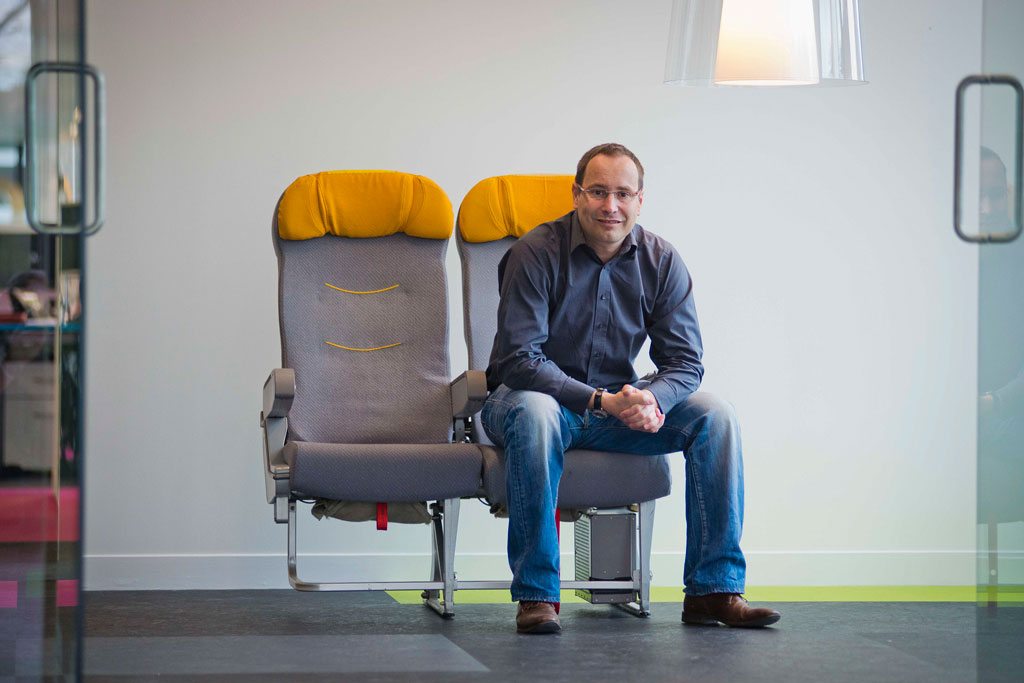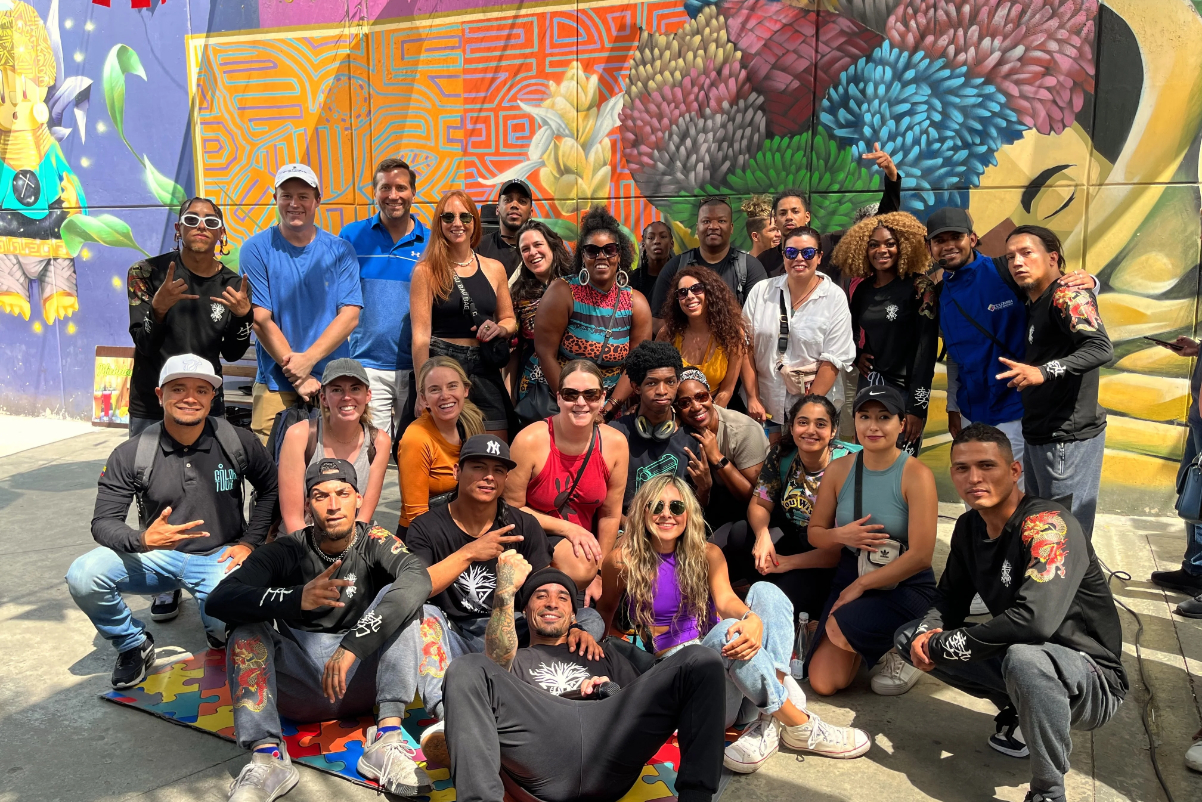Skift Forum Europe: Skyscanner’s CEO Is Looking Beyond Scale

Skift Take
On April 4 in London, hundreds of the travel industry’s brightest and best will gather in London for the first Skift Forum Europe 2017. In only a few short years Skift’s Forums — the largest creative business gatherings in the global travel industry — have become what media, speakers, and attendees have called the “TED Talks of travel.”
This year’s event at Tobacco Dock in London will feature speakers including CEOs and top executives from InterContinental Hotels Group (IHG), Norwegian Air, Google, Lonely Planet, Momondo Group, and many more.
The following is part of a series of posts highlighting some of the speakers and touching on issues of concern in Europe and beyond.
Gareth Williams is in a great mood these days, only a couple of months after having successfully sold Skyscanner to Chinese online travel giant Ctrip in a £1.4 billion (or $1.74 billion) deal.
As co-founder of Edinburgh-based Skyscanner — one of the world’s largest travel price-comparison search startups — Williams is currently focused on global expansion for his company, which already has 800 employees across 10 offices. Fresh funding will further fuel the company’s growth, as Williams told Skift recently in an interview about the Ctrip acquisition and the future of metasearch.
We recently caught up with Williams to suss out his views on the broader trends in technology and startup innovation he needs to stay on top of his job.
Skyscanner CEO Gareth Williams will be speaking about the future of hospitality at the Skift Forum Europe 2017 on April 4 in London.
Skift: If instant booking (where users book travel without leaving the Skyscanner interface) is so great, why is it taking so long for airlines to sign up and implement it? Skyscanner debuted instant booking two summers ago with British Airways for some circumstances, and only low-cost Singaporean airline Scoot has followed that lead.
Gareth Williams: By offering a more seamless booking process with as little friction as possible, our direct book partners have experienced significant uplifts in both their conversion and ancillary up-sell rates, showing the platform is good for users and beneficial to suppliers. Those who have integrated are already reaping the benefits.
Our initial approach was a minimum-viable-product/proof-of-concept. Having validated the approach with a strong response from both users and partners, we’ve invested in this strategy to ensure we can integrate and support partners with different requirements.
We can now support the needs of most top-tier partners and are ramping our integration efforts accordingly. We have a strong pipeline of carriers coming up in the near future with a view to scaling coverage rapidly from here on in.
The integration of Amadeus’s Navitaire reservation system [which is already used by many low-cost-carriers] should allow us to process many more carriers going forward.
Skift: Skyscanner has been a pioneer in voice-enabled Internet, with integrations into Amazon’s Alexa tool and Skype’s chat. What have you learned and where do you think things may head?
Williams: We assumed from the start that people wouldn’t want to say too much at one go, but if they are led carefully through the process they’ll happily converse.
For example, it’s unlikely people will ask a full travel query in one long phrase, and we’ve found that to be the case. They might tell us origin and destination, but not the dates they’re traveling, though they are happy to be asked for those dates to complete the search.
There are a number of interesting challenges with conversational search. In travel specifically, it’s hard to cover the entire globe and train in a bot product to understand the various ways people ask for things.
For example, New York, JFK, La Guardia, New York City — we have to be prepared for all of these. ‘Next weekend’ ‘a week on Thursday’ are other examples from a time-frame point of view. Add multi-lingual versions to this and there’s so much data you have to parse for that to work.
Secondly there’s the challenge of ensuring a traveller understands what the bot can do. What we are seeing is that as people grow more and more familiar in speaking with bots and understanding what they’re able to help with, they become increasingly specific in what they ask. They also return to use bots more frequently.
Interestingly, those using our bots treat them in a very ‘human’ way – they’ll ask for the bot’s name, send an emoji or sticker of appreciation etc.
Overall it’s a learning process and we’ve tuned our products based on what people said to us, and we’ll continue to do that as the platforms evolve.
Skift: A lot of startups and entrepreneurs will be attending Skift’s Global Forum in London. You’ve been an investor and a mentor to many startups, such as Appointedd, my1login, DevicePilot, Beer52, and blipfoto. What is your advice to startup founders? Or what’s something you’ve learned to recognize as being important?
Williams: Things that make a start-up interesting to me are technical and product skills on the founding team. I prefer SaaS to enterprise sales and I prefer teams that avoid fundraising and retain big goals above making money.
I’d say that for those building a business, people management and communication skills are important, as is communicating that shared vision. So too is keeping true to your instinct.
On a personal note, looking back I’d tell myself to enjoy the journey more. That point where you become a successful business can seem elusive, so it’s really important to enjoy the small successes along the way, celebrate them and see them as a milestone on the road to the next exciting achievement.
Skift: A question about Skyscanner’s rise, and the lesson you draw from it as you advise young startups today: Your startup was founded in 2003, but didn’t take funding until 2008, when Scottish Equity Partners invested £2.5 million. The funding let you go beyond search results for flights originating in the UK. What are the pros and cons of taking funding, and what flexibility did it give you or not give you?
Williams: Correct; it wasn’t until 2007 that we started thinking about external investment, and we received £2.5 million from Scottish Equity Partners in January 2008. Until then, we had bootstrapped the business.
There is a lot to be said for bootstrapping a business in the early years. Doing so provides a great foundation – when we failed, we failed fast. We were leaner, more creative and more innovative as a result.
It also means that on taking investment we had greater control over the company, as we’d already proved ourselves to be profitable via this bootstrapping. Investment obviously gives you flexibility financially and the opportunity to accelerate what you’re doing, two huge advantages.
Skift: Doing business in China has proven to be an elusive challenge to a few Western travel brands. But between your Youbibi acquisition and then your acquisition by Ctrip, you’ve learned a lot about the Chinese market. What’s a lesson that surprised you and that you could share with tech companies wanting to participate in the growth of China’s consumer and business markets?
Williams: In very many ways, the Chinese consumer has higher standards of expectation (service, speed, price, quality of experience, convenience) than anywhere else in the world. Mobile, in particular, is important in this market.
Nothing so much that has been a surprise but key lessons in expanding into any new market would include the following. The first is that it’s crucial not to make assumptions based on European heritage (or any other specific geographical location). Each market is different and China is a case in point. Localisation and tailoring of your product are key.
A deep knowledge of cultures and trends across the travel landscape are crucial. Product market fit is essential.
We had the benefit of having expanded into multiple markets previously so with China we took similar steps in what is a culturally distinct and unique country. We spent a lot of time immersing ourselves in the market, learning, testing and iterating.
This approach served us well: today we believe we have a very strong offering, reflected in our 2015 growth stats: a 67% visitor growth in the country, as well as a near-doubling of mobile visitors.
Williams will be speaking about the future of hospitality at the Skift Forum Europe 2017 on April 4 in London.
REGISTER NOW FOR SKIFT FORUM EUROPE






